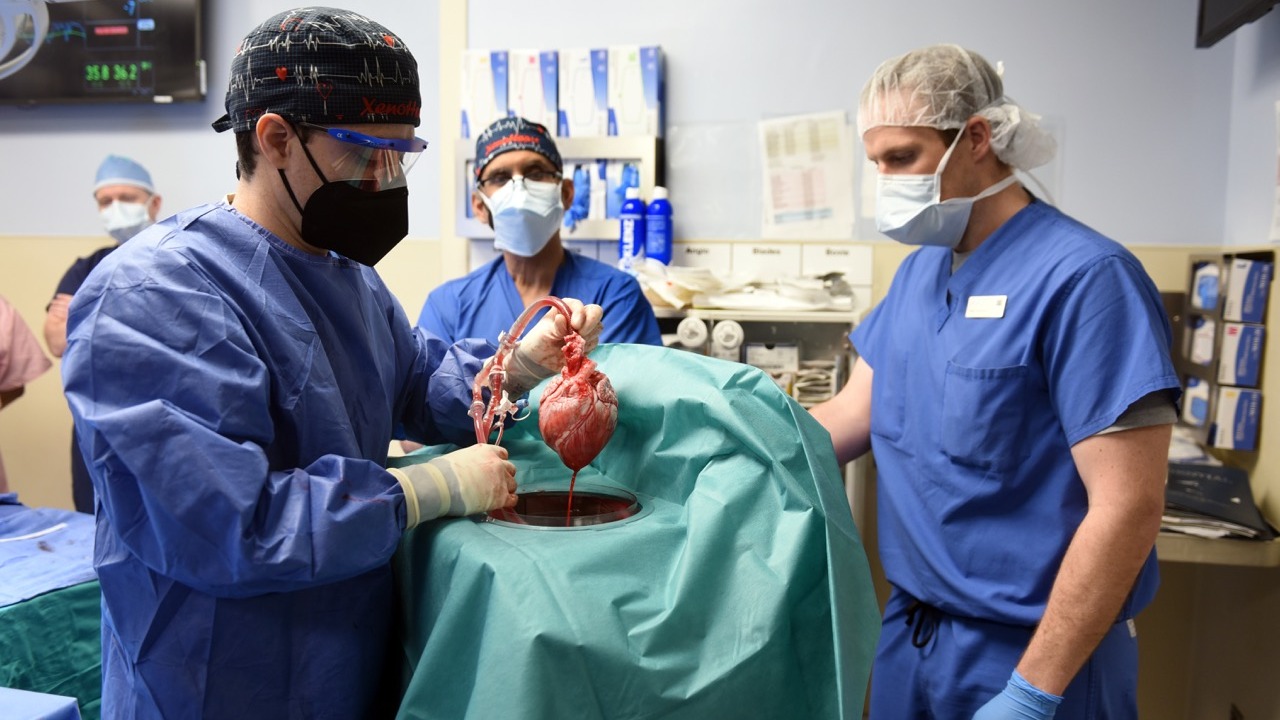David Bennett felt he had one more chance to live. In a recent first-of-its-kind transplant, the 57-year-old Maryland man with terminal heart disease received a genetically modified pig’s heart last month.
Doctors at the University of Maryland Medical Center performed the operation after several other leading transplant centres considered him ineligible for a traditional heart transplant.
The process of transplanting non-human tissues or organs into human recipients is called xenotransplantation. And it’s been under the microscope for ethical and practical reasons in Canada.
Pigs are preferred as donors because the size of organs is similar to the size of humans. They are easy to breed and raise in confinement.
The transplant is considered a success.
“It was either die or do this transplant. I want to live. I know it’s a shot in the dark, but it’s my last choice,” Bennett said a day before the surgery was conducted. He had been hospitalized and bedridden for the past few months, according to a media release issued by the medical center (UMMC).
The transplant affects not only Bennett but several others and raises a few ethical questions.
Experts related the origin of SARS-CoV-2 to bats. The pandemic is a live example to understand why there is a need for a reasonable distance between animals and humans as one virus from an animal can infect the whole human world.
Even after knowing that much could go wrong, the medical industry is still placing hope on xenotransplantation.
“[Xenotransplantation] has been around a long time but for whatever reason, there has been reticence in the research community to actually transplant a modified animal body part,” said Liz White of the Animal Protection Party of Canada.
White referred to the U.S. National Library of Medicine’s article which highlights the dangers associated with such transplants, such as an immune system’s rejection of the organ or becoming infected with a virus. The article noted the U.K. discourages and bans non-humans as sources for transplants.
Along with the medical implications, the procedure raises religious and animal rights concerns. Islam and Judaism forbid followers from raising or eating pigs as it is considered unclean meat, but have not completely ruled out xenotransplants under certain conditions if it involves a life-saving operation.
People for the Ethical Treatment of Animals (PETA) — whose motto reads, in part, that “animals are not ours to experiment on” — opposes speciesism, a human-supremacist worldview, and condemned the transplant operation on Bennett.
Alka Chandna, vice president of laboratory investigations cases at PETA, said animal-to-human transplants are “unethical, dangerous, and a tremendous waste of resources.”
She said that such resources could be used to fund research that might actually help humans.
“The risk of transmitting unknown viruses along with the animal organ is real and, in the time of a pandemic, should be enough to end these studies forever,” Chandna said.
Animals aren’t “tool sheds to be raided but complex, intelligent beings” and it would be better for humans to leave them alone while seeking cures using modern science, she said.

